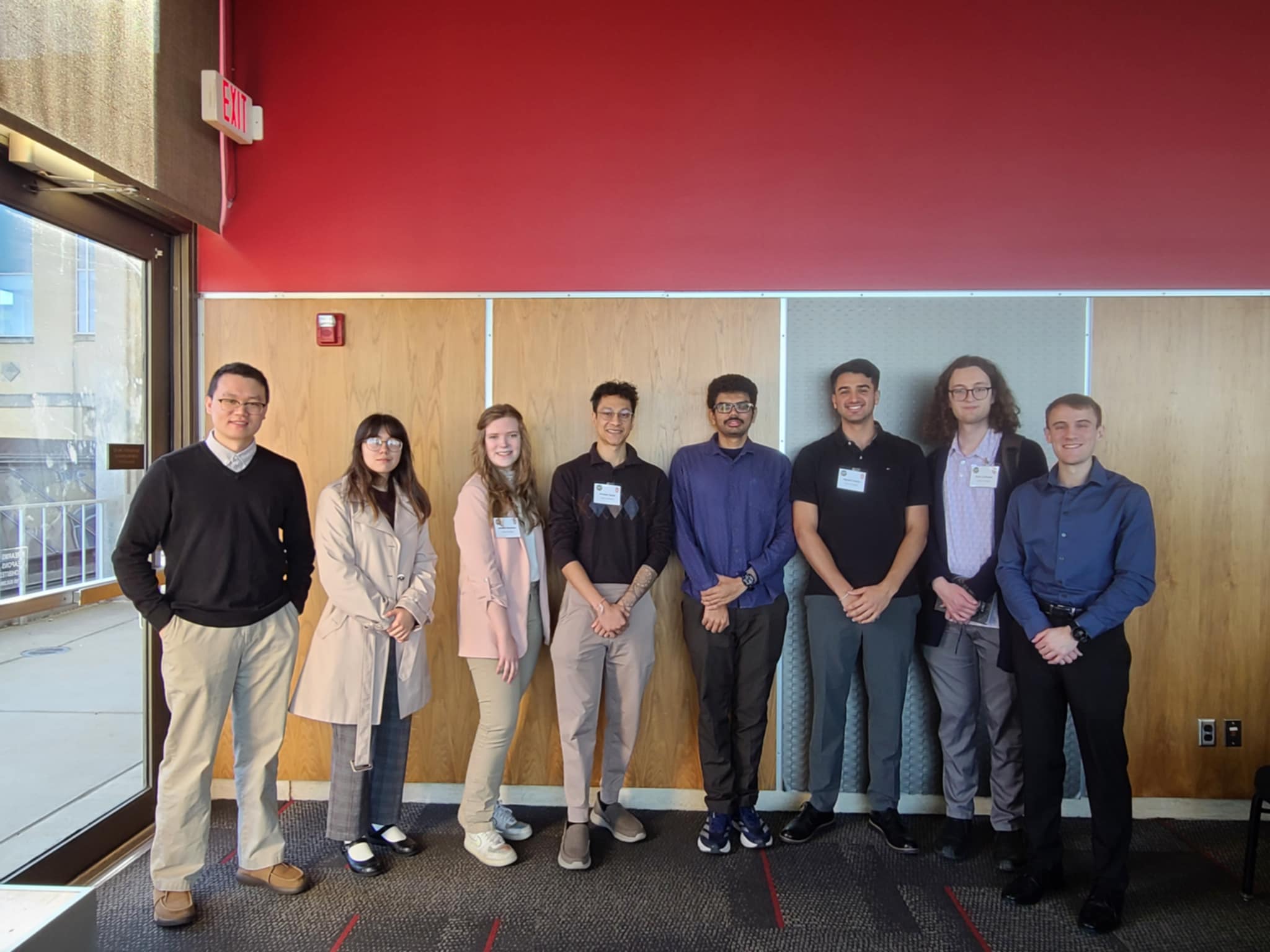Students, postdoctoral researchers, and alum from the Astronomy Department traveled to Madison, WI to participate in the 2025 Great Lakes Exoplanet Area Meeting (GLEAM), which took place November 6 & 7.
These early-career astronomers presented their theoretical and observational work on a variety of topics in exoplanets, ranging from dynamical evolution to planet discoveries. Undergraduate Ariel Smyrichinsky presented a poster titled "Constraining tidal parameters of high-eccentricity Hot Jupiter systems" and graduate student Ryan LoRusso presented a poster titled "Breaking resonance chains of cold Neptunes by planetesimal-driven scattering".
Several graduate students and postdocs participated by giving full oral presentations on their research, listed here:
- Agustín Herón: "Unraveling the Asymmetric Accumulation of Material at Co-orbital Lagrange Points"
- Brandon Radzom: "Hot or Not: Hot Jupiters’ Isolation Is Not Unique to High-Eccentricity Tidal Migration"
- Jessica Ranshaw: "K2-232c: A Cold Jupiter Redefining the Origins of Hot and Warm Jupiters"
- Dr. Hareesh Gautham Bhaskar: "Lower stellar obliquities for wider-orbit hot Jupiters from high-eccentricity migration"
- Dr. Xian-Yu Wang: "A Homogeneous Stellar Obliquity Sample from Global Modeling of Rossiter–McLaughlin Measurements"
Last hosted at Indiana University in 2023, the GLEAM conference has been critical to growing the strong exoplanet community in the Midwest region.

Pictured in the image, from left to right: Xian-Yu Wang, Ariel Smyrichinsky, Jessica Ranshaw, Armaan Goyal, Hareesh Gautham Bhaskar, Agustín Herón, Ryan LoRusso, Brandon Radzom.


 The College of Arts
The College of Arts